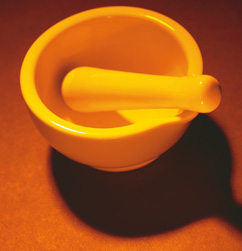In times of crisis, we know that there are people who take advantage and we are already seeing scams being set up to defraud during this pandemic. So says Susan Frith, the long-time NHS counter-fraud manager, the CEO of the NHSCFA (National Health Service Counter Fraud Authority).
She says: “The areas of highest risk that we are aware of are mandate (invoice) and procurement fraud and we know from experience that criminals will target any vulnerability.”
Security people, then, have two strands of work, the same as they ever do; working against criminals, who are trying to make their criminal living whatever the circumstances; and protecting assets so that the law-abiding can go about their business safely.
The coronavirus is a test; not only laying bare human character – people who give in to panic-buying, and retailers who ramp up prices – but reveals the nature of things. Security is a service, like cleaning, or catering. While technology in remote monitoring has done away with humans, still there is a need – at pub doors, office receptions, warehouse gatehouses – for human guards. With coronavirus, human contact brings risk.
Sue Frith says that the CFA is ‘trying to run as close to business as usual as possible’; but has made changes already; for example, she has made the decision that the Authority will not arrange any new ‘engagement visits’. The CFA extended the deadline for the annual counter fraud self-review process (SRT) to May 31, ‘and will keep this under review’. Like so many others in workplaces, Sue Frith speaks also of potential ‘need to introduce new and different ways of working’.
For some, halfway houses between tech and human interaction were the norm before the coronavirus outbreak; in supermarkets, a security officer monitoring video from a half-public desk at the entrance.
Bill Freear, Group Managing Director at guarding contractor Pilgrims Group, said that we have been here – in extraordinary times – before; and that those providing emergency medical and security aid go towards the danger, whether in 2011, in the Middle East, when clients were caught in the midst of disorder of the ‘Arab Spring’ and looking to evacuate; the border fighting between Ukraine and Russia; ISIS fighters advancing in Syria and Iraq in 2014; rescues after the Indian Ocean earthquake and tsunami in 2004, the Hurricane Katrina floods in New Orleans in 2005, Haiti earthquake in 2010, Japan’s nuclear disaster in 2011 and the Ebola outbreak in Africa in 2014.
He said: “We are not forgetting our duty of care to protect our own staff and minimise their risk of exposure to the COVID-19 virus. Our plans and activities in this regard are well developed and are constantly adapting to match the threat. At our HQs, we have a split workforce rotating between home and office that we can ensure continuity of support for our deployed teams around the world.”
His point was well meant and well made, as was Mike Reddington’s. The chief of the BSIA made an important query yesterday when he asked UK Government if security officers count as ‘critical workers’ like the police.
Those providing security services may find themselves facing an economic risk, precisely because security services are so human. A video camera no matter how good its optical zoom cannot make an arrest, or deny access to the unauthorised; if an intruder scales a fence, or rams a shop for the ATM cash, only a human can intervene. The economic risk is that if humans avoid contact, and economic activity slows, so does income. Some economic activity will be made up – if the Euro 2020 football competition is not happening this summer, it will go ahead the next. IFSEC is postponed from May to September; business will take place.
Blossom is on the trees as normal and the grass is growing (too fast, you might think, if you have a lawn). But you cannot turn back the clock to make up the lost days, weeks, of a slack economy; which hurts the service sector more than manufacturing. You want to buy a new car this year? One month is as good as another; the car industry will make, roughly, its money by year’s end. If celebrities are staying at home, they don’t need outdoor close protection; if business and other travellers are not staying in hotels, where does that leave security and any other hospitality sector workers.
Economic ways, too, have been laid bare by the virus – namely zero hour contracts. If pubs shut, theatres, sports competitions, event stewards and door staff are out of work. For how long are security officers supposed to pay bills if their weekly hours are, indeed, zero?









